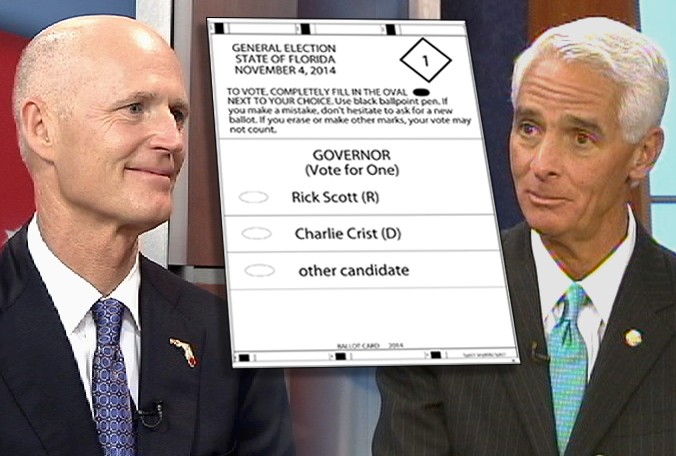
This November, Florida will host one of the most-watched gubernatorial races of the year. Republican Governor Rick Scott is running for reelection against former Republican Governor, Independent and now Democrat Charlie Crist. Their records stand in stark contrast to each other, especially when comparing economic indicators over the four year terms of each governor.

When Charlie Crist took office as governor in 2006, unemployment was at 3.5%, he had made a written commitment to oppose any and all efforts to raise taxes, and he was a Republican. When he left office, Florida had lost 825,000 jobs, unemployment had risen to 11.1%, he had signed more than $2 billion in higher taxes into law, he had embraced President Obama’s Stimulus package, and he was no longer a Republican.
When Rick Scott took office as governor in 2010, he inherited this mess. He governed as he promised too, however, cutting taxes, reining in spending, and bringing Florida back from the brink of disaster. As a result, unemployment has fallen to 6.2%, there was a $1.2 billion surplus this year, and he’s signed over $2 billion in tax cuts into law. This includes 24 individual tax and fees cuts up through 2014 and $400 million in cuts this year.
Both Rick Scott and Charlie Crist signed the Taxpayer Protection Pledge to Florida voters when they ran for governor in 2005 and 2009 respectively. Crist, however, broke his personal written commitment, by signing more than $2 billion in higher taxes and fees into law.
This is the tale of two governors. One candidate breaks promises to taxpayers and has a horrible record to run on. The other candidate is Rick Scott.


